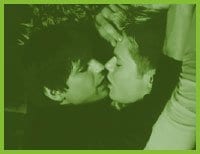Equating homo- sexuality with demonic possession is too much for the Canadian Broadcast Standards Council.
In a decision this fall, the council ruled that on a Feb 2002 broadcast on Vision TV, evangelist RW Schambach breached the council’s code of ethics. Like an infomercial, Schambach’s show, Power Today, pays a fee to appear on Vision, but Vision is still responsible for its content.
“Homosexuality is not another lifestyle,” Schambach is quoted as saying on the show. “It’s a demon spirit. In the beginning God made Adam and Eve. He didn’t make Adam and Steve…. God made you a man; God made you a woman. And the devil has come in and he’s thwarted the program of God…. What you do in private, God’s gonna splash it all over the front page. Demon spirit.”
The code states that broadcasters shouldn’t broadcast material that is discriminatory or abusive.
“The panel considers that intolerant comment can find no salvation by wrapping itself in religious garb,” the decision states. “Broadcasters of religious programming must be as vigilant with respect to the other societal values (such as the human rights of identifiable groups) as broadcasters of all other types of programming.”
In its response to the complaint, Vision stated that, “Vision TV will not allow any faith group to encourage any harm or victimization of any identifiable group, including homosexual people. Pastor Schambach was trying to state his understanding of biblical sexual injunctions. He did not suggest that any harm be done to gay and lesbian people. However, I do regret the negative impact that his statements have had on you and on any other viewers.”
There’s no real penalty for Vision TV; it’s merely required to broadcast the decision twice, once in prime time and once during Power Today.
***
In a separate decision from the council this fall, a panel decided that the popular Showcase show Queer As Folk does not breach the council’s sex guidelines – but the racy content does require a viewer advisory coming out of every commercial break.
A viewer advisory warning appeared at the beginning of the Nov 12, 2001 episode, but not after the first or third commercial breaks. An audio warning was played coming out of the second commercial break. That episode depicts a 17-year-old and a 30-something having sex three different times, though genitals are not shown.
“I was appalled to see blatant, explicit sexual acts playing on my television screen,” stated a letter from the complainant.
Showcase defended the show by pointing in part to its critical acclaim and the time of the broadcast (10pm).
“We understand that certain sex scenes may have caused you grave concern,” the broadcaster stated in its response. “Our view is that these scenes must be viewed within the context of the program as a whole. The sex scenes depicted in Queer As Folk are consensual and are essential to the story line. They help define the emotional relationships of the characters and their experiences.”
This wasn’t enough for the complainant.
“I expect that the sexually explicit scenes and some violence [and] some language will be edited out of the movie to be shown on television, regardless of the hour it is to be played,” she wrote. “[Does] an explicit sexual courting and explicit sex between a high school student and a 30-something man fall within our country’s guidelines of what is acceptable for television?”
Yes, said the panel, though it stated that Showcase had to do a better job at warning people though repeated advisories about what kind of “viewer discretion” is necessary.
“Audiences are entitled to have sufficient information about program content to enable them to exercise a knowledgeable viewing decision.”
Showcase was ordered to broadcast the decision once during prime time and once during Queer As Folk.


 Why you can trust Xtra
Why you can trust Xtra


